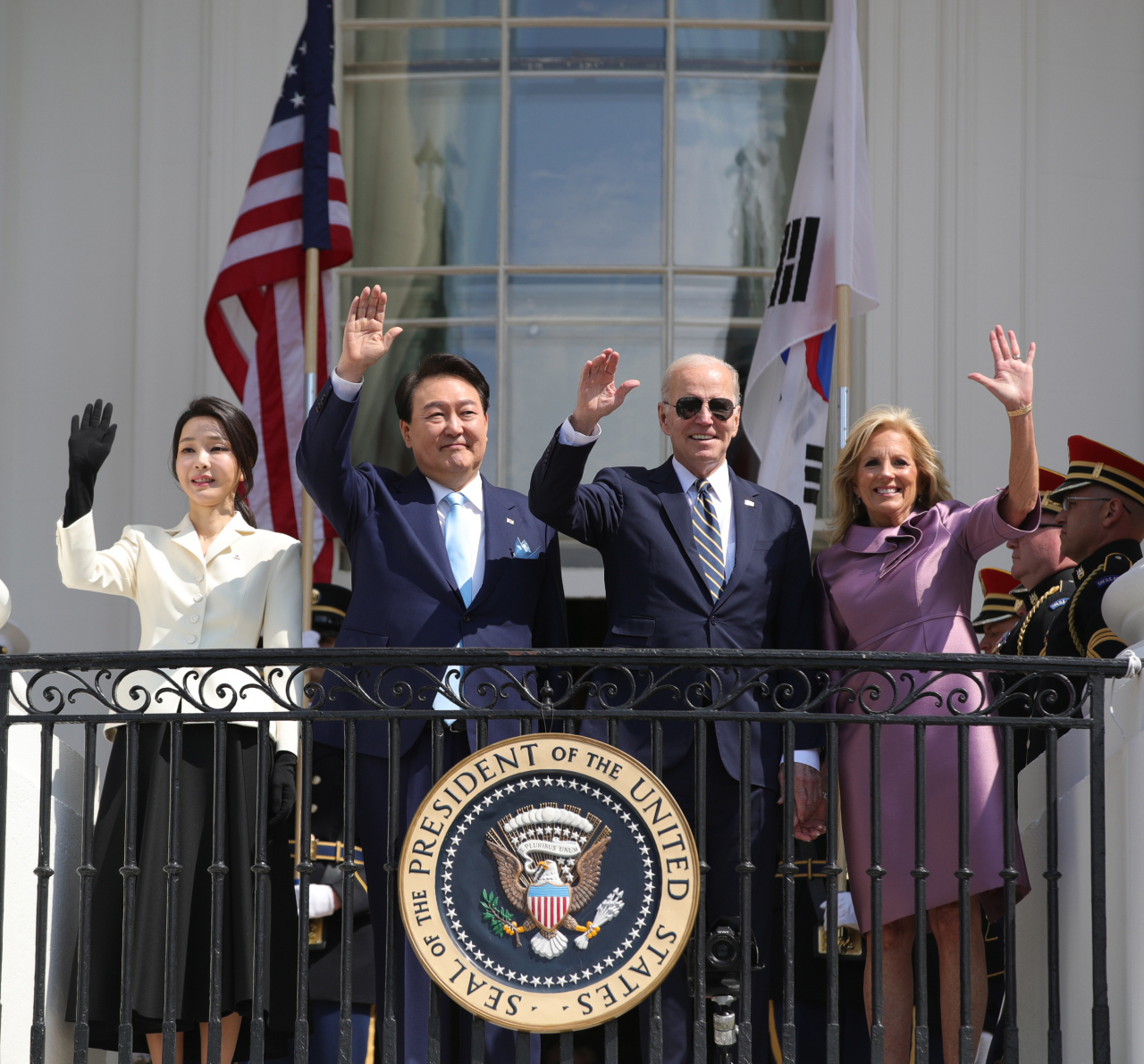 |
South Korean President Yoon Suk Yeol and US President Joe Biden on Wednesday wave from the balcony of the White House in Washington. (Yonhap) |
WASHINGTON (AFP) – South Korean President Yoon Suk Yeol arrived at the White House in Washington for a state visit Wednesday, at which Yoon and his US counterpart Joe Biden will announce a beefed-up US nuclear shield for Washington's vital ally in the face of an aggressive North Korea.
A military honor guard and hundreds of guests massed outside the White House where Yoon and his wife, Kim Keon Hee, arrived for a day of pomp and ceremony -- and far-reaching geostrategic discussions.
Standing alongside Yoon, Biden lauded what he called the “unbreakable bond” of the countries' “iron-clad alliance,” forged in the Korean War seven decades ago.
The allies are economic powerhouses and partners in keeping a "free and open" Asia-Pacific region, Biden said, adding "Ours is a future filled with unimaginable opportunities."
Yoon and Biden will meet together in the Oval Office and hold a joint press conference before ending the day with a lavish state dinner in the ceremonial East Room.
Ahead of Yoon's arrival, senior US officials told reporters that the two leaders would announce measures to reinforce deterrence against North Korea, including the first deployment of a US nuclear missile submarine to the country in decades.
What will be known as the Washington Declaration will also create a US-South Korean consultative group, giving Seoul more information and input on nuclear policy -- although Washington will retain sole command of its weapons, officials said.
The arrangement -- responding to ever-growing tension over communist North Korea's missile tests and nuclear arsenal -- echoes moves last seen when Washington oversaw the defense of Europe against the Soviet Union.
"The United States has not taken these steps, really, since the height of the Cold War with our very closest handful of allies in Europe. And we are seeking to ensure that by undertaking these new procedures, these new steps, that our commitment to extended deterrence is unquestionable," a senior official said.
The officials, speaking on condition of anonymity, stressed that there are no plans to station US nuclear weapons in South Korea -- a difference from the Cold War, when US strategic weapons were deployed to Europe.
In addition, Seoul will reiterate its pledge in the declaration not to seek its own nuclear arsenal. (AFP)




![[Herald Interview] 'Trump will use tariffs as first line of defense for American manufacturing'](http://res.heraldm.com/phpwas/restmb_idxmake.php?idx=644&simg=/content/image/2024/11/26/20241126050017_0.jpg)


![[Herald Review] 'Gangnam B-Side' combines social realism with masterful suspense, performance](http://res.heraldm.com/phpwas/restmb_idxmake.php?idx=644&simg=/content/image/2024/11/25/20241125050072_0.jpg)